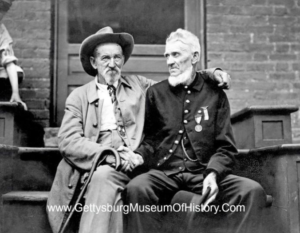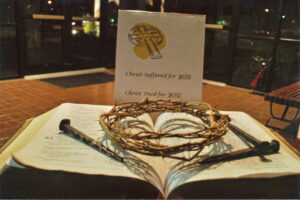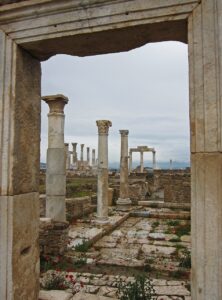 Words combined with actions can be a powerful witness in our world. When someone says they will do something, others expect them to do what they say. Lately, our society is giving us more and more examples of people who say something that people want to hear. You guessed it; then they don’t bother to follow through. If the inconsistent behavior continues, one might conclude that such a person is untruthful. What does the Bible say about keeping our word?
Words combined with actions can be a powerful witness in our world. When someone says they will do something, others expect them to do what they say. Lately, our society is giving us more and more examples of people who say something that people want to hear. You guessed it; then they don’t bother to follow through. If the inconsistent behavior continues, one might conclude that such a person is untruthful. What does the Bible say about keeping our word?
(James 5:12)1NIV New International Version Translations “Above all, my brothers and sisters, do not swear—not by heaven or by earth or by anything else. All you need to say is a simple “Yes” or “No.” Otherwise you will be condemned
James, Jesus’s half-brother, brings things into perspective. Don’t promise what you are not willing to do. Once promised, God considers your words an oath. Like God, His oath, our oath should mean something. Scripture has many examples to look at. One is an “in your face” example, the story of Jephthah. This story illustrates the foolishness of making vows, promises without understanding the consequences. Jephthah appears in the Book of Judges as a judge who presided over Israel for a period of six years (Judges 12:7). According to the Book of Judges, he lived in Gilead. His father’s name is also given as Gilead, and, as his mother is described as a prostitute. Jephthah was described as a mighty man of valor. Before leading the Israelites into battle against Ammon, he made a rash vow. That he would give to the Lord whoever first came out of doors to meet him if he returned home as the victor. When the Lord granted him victory over the Ammonites, the one who came out to meet him was his daughter. Jephthah remembered his vow and offered her to the Lord (Judges 11:29–40).
Ammon, also known as Ben-Ammi, was the son of an incestuous union of Lot with his younger daughter. He was the brother of Moab, who was also a child of Lot’s incestuous relationship with his eldest daughter. Both were conceived after the destruction of Sodom. Ammon became the ancestor of the Ammonites. When Jephthah’s daughter was the first to come out of the house, he immediately regretted the vow. This required him to sacrifice his daughter to God. Jephthah then carried out his vow.
The Talmud is a collection of writings that covers the full gamut of Jewish law and tradition. It was compiled and edited between the third and sixth centuries. The Talmud is Hebrew for “learning.” The Talmud characterizes Jephthah as a person of poor judgment. He was someone who made “unfitting” vows without proper consideration for consequences. If Jephthah had read the laws of vows in the Torah, he would not have lost his daughter. It is not hard to see that making a bad oath can be as wrong as honoring a bad oath. God’s advice, don’t make them without understanding the consequences!
Jesus also taught about vows:
(Matthew 5:33–37) – “You have heard that it was said to the people long ago, ‘Do not break your oath, but keep the oaths you have made to the Lord.’ But I tell you, do not swear at all: either by heaven, for it is God’s throne; or by the earth, for it is his footstool; or by Jerusalem, for it is the city of the Great King. And do not swear by your head, for you cannot make even one hair white or black. Simply let your ‘Yes’ be ‘Yes,’ and your ‘No ,’ ‘No’; anything beyond this comes from the evil one”
The religious leaders of the day advocated keeping a vow if it was a public vow using God’s name. However, if the vow was made during everyday conversation, referencing only “heaven” or “earth” or “Jerusalem,” it was not really binding. People had a loophole. They could lie or exaggerate in their conversations and lend themselves an air of credibility by saying, “I swear by heaven that this is true!” The religious leaders taught that people would not be held to account because they did not specifically swear by “God’s name” and the vow was private. Jesus countered that idea. If you swear something, it had better be true, He says. In fact, all you need to say is “yes” or “no.” Your word should be good. There’s no need for covering your tracks.
Psalm 15:4 describes a righteous person as one “who keeps an oath even when it hurts and does not change their mind.” Oaths, promises are to be binding, even when spoken in jest or privately as part of everyday conversation. A promise is a promise, and there is no loophole in God’s eyes to allow a person to renege on a promise. When we hear others make promises, whether friends, politicians, etc., our expectations should align with God’s expectations. People are to be held accountable to their promises (oaths). Why, in this age of the Internet and its army of professional and amateur fact-checkers, do people make promises they have no intention of keeping (lie)? Here are some clues that might help the next time you are listening to someone make a promise:
- Narcissists are arrogant, self-important. They see themselves as special, need excessive admiration, have a sense of entitlement, and are exploitative. Avoid them if you can! They were crafters of the Talmud’s “Fine Print.”
- We have a built-in bias. We hear what we want to believe. Fight the urge, fact check everything against God’s perspective.
- Very few people want to hear the truth. Truth often hurts. Truth threatens our own beliefs, makes us uncomfortable. If we know God’s Truth, this should never be a problem.
- The Internet never forgets. The problem is that information, true or not, lives on forever. Information lives on even in the face of contradictory evidence. Use many sources. Use common sense. Let the Holy Spirit help you.
- Cognitive biases. We seek out information that supports our own preconceived notions. To be open-minded requires discipline.
- If a lie is told enough times, people assume it to be true. So people hear the same untruth, over and over. Learn to spot it and then ignore it.
- People no longer care what God thinks. This is the final thought on this point. If people don’t care about God, they don’t care about their oaths, promises!
Contemplations
- What do you do when a person has made a promise to you and then broken it?
- Ideas to Explore: Does such an action, a lie, affect how you view the person? If it is a politician, do you change your opinion?
- How do you determine if someone is truthful?
- Ideas to Explore: Do you use opinions of others to form your own opinion? Do you “fact check?” Where do you get your facts?
- If media and the Internet should not be viewed as reliable sources, where do you get your information?
- Ideas to Explore: It is not about politics any more. Truth seems to be waning . How do you use the Bible and God’s Truths to sort out facts?
- What is the role of the church in all of this?
- Ideas to Explore: Should the church address issues of truth? Should the church focus more attention on skill building such as the use of reason and revelation?
- What is the role of common sense in all of this?
- Ideas to Explore: Common sense fails if bias is present. How is common sense practiced? How is common sense taught?
- 1NIV New International Version Translations









